SEO
9 Successful PR Campaign Examples, According to the Data
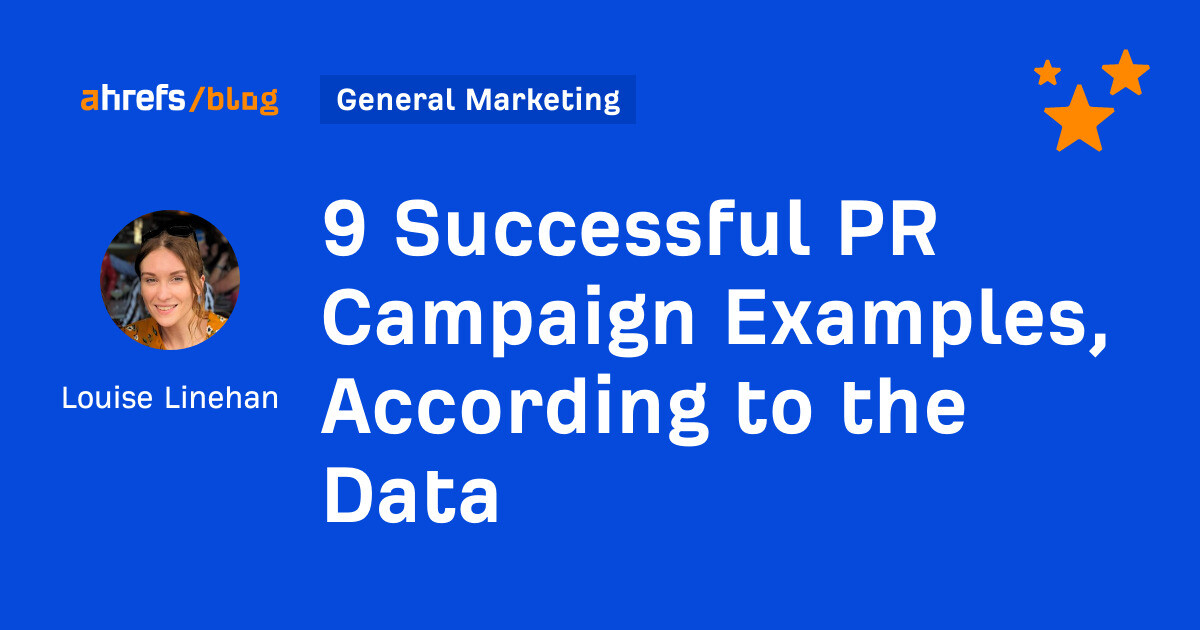
From Barbie-themed ketchup to exploding owl butts, these PR campaign examples prove that with the right data, timing, and a bit of creativity, you can win coverage and drive real, measurable results.
In this post, you’ll see the data behind nine successful PR campaigns, and hopefully get some inspiration for your next press idea.
9 popular PR campaign examples
This list is a real mixed bag of PR examples – from newsjacking, to content repurposing, exclusive research, and kooky brand stunts – but one thing they all have in common is measurable success.
In each section, I’ll do a post-mortem of campaign performance, share some analysis tactics, and round-off with a couple of quick tips.
Sound good? Let’s jump in.
| Campaign 🍅👱🏼♀️🎀 | Heinz Barbiecue |
| Brand(s) 🏷️ | Heinz + Mattel |
| Links earned 🔗 | 62 |
| Campaign type 📰 | Newjacking/brand collab/product release |
| Global search volume 🔎 | 600 for “barbie ketchup” |
| Search growth (YoY) 📈 | 200% for “barbie ketchup” |
Back in August 2023, when Barbiecore was all the rage, Heinz teased a mockup of two Barbie themed sauces: Kenchup and Barbiecue sauce.
Eight months later, for Barbie’s 65th anniversary in April 2024, Heinz and Mattel dropped the official Barbiecue special edition sauce.
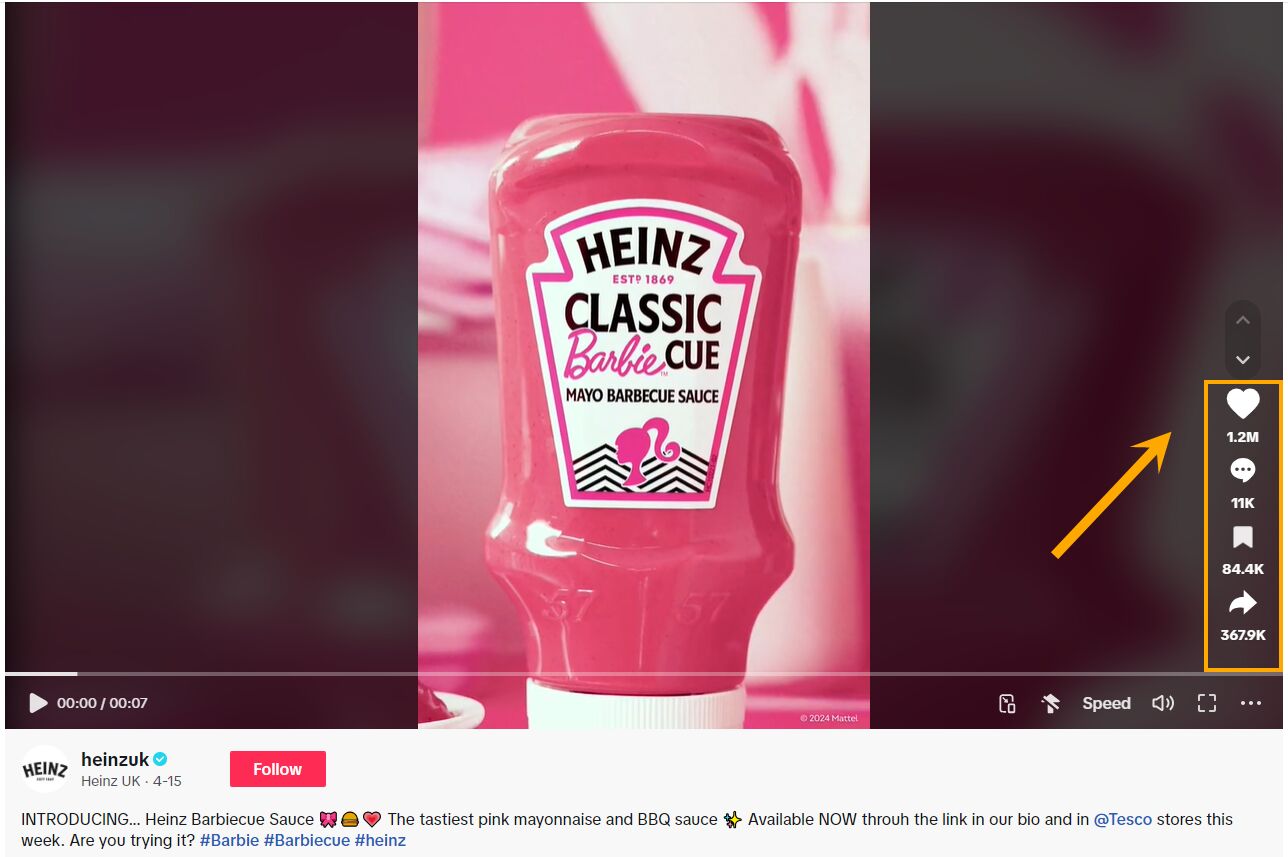

Heinz first conceived of the PR stunt to build intrigue around the product months before it hit the shelves, then used public response as a litmus test for its success.
According to their submission in the Shorty Awards, they carefully coordinated their initial “teaser” drop to coincide with an uptick in audience discussions, following the film’s release.
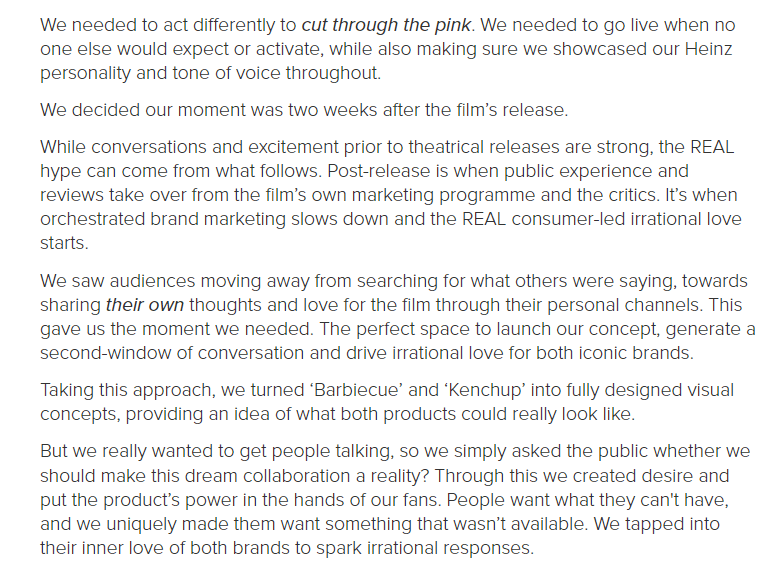

To date, the Barbiecue PR campaign has earned Heinz 118 relevant mentions in top-tier media outlets like Bloomberg, Yahoo, CBS News, and The Standard, according to Content Explorer.
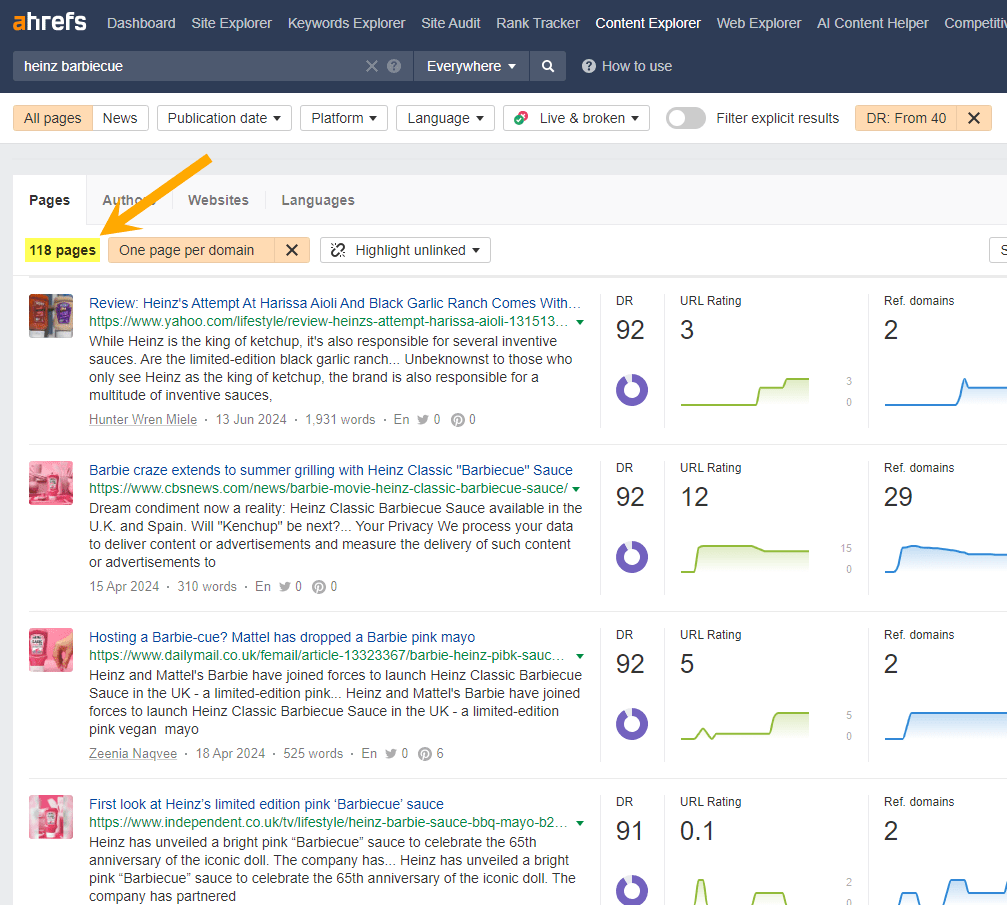

With zero dollars in paid promotion, it also generated 38 million organic social impressions and doubled average engagement rates.
Quick learnings
- Hijack trending cultural “moments”
- Time your PR campaign launch with peak online conversation
- Use teaser PR to gauge consumer demand and fuel future R&D decisions
| Campaign 🛀 | Saltbomb |
| Brand 🏷️ | Lush |
| Links earned 🔗 | 142 |
| Campaign type 📰 | Newjacking/product release |
| Global search volume 🔎 | 1.3K for “lush saltburn bath bomb” |
| Search growth (YoY) 📈 | 37K% for “lush saltburn bath bomb” |
This is another great PR example of a brand capitalizing on a film, and waiting for post-event discussion to pick up before newsjacking.
Following a veerryy controversial bath scene in the film Saltburn, UK cosmetics retailer, Lush, jumped on the opportunity to insert their brand into a cultural moment.
In February 2024, three months after the film’s release, they released the “Saltbomb”, a special edition, Saltburn-themed bath bomb.
Parodying some of the film’s most risqué moments, Lush didn’t hold back with their product marketing.
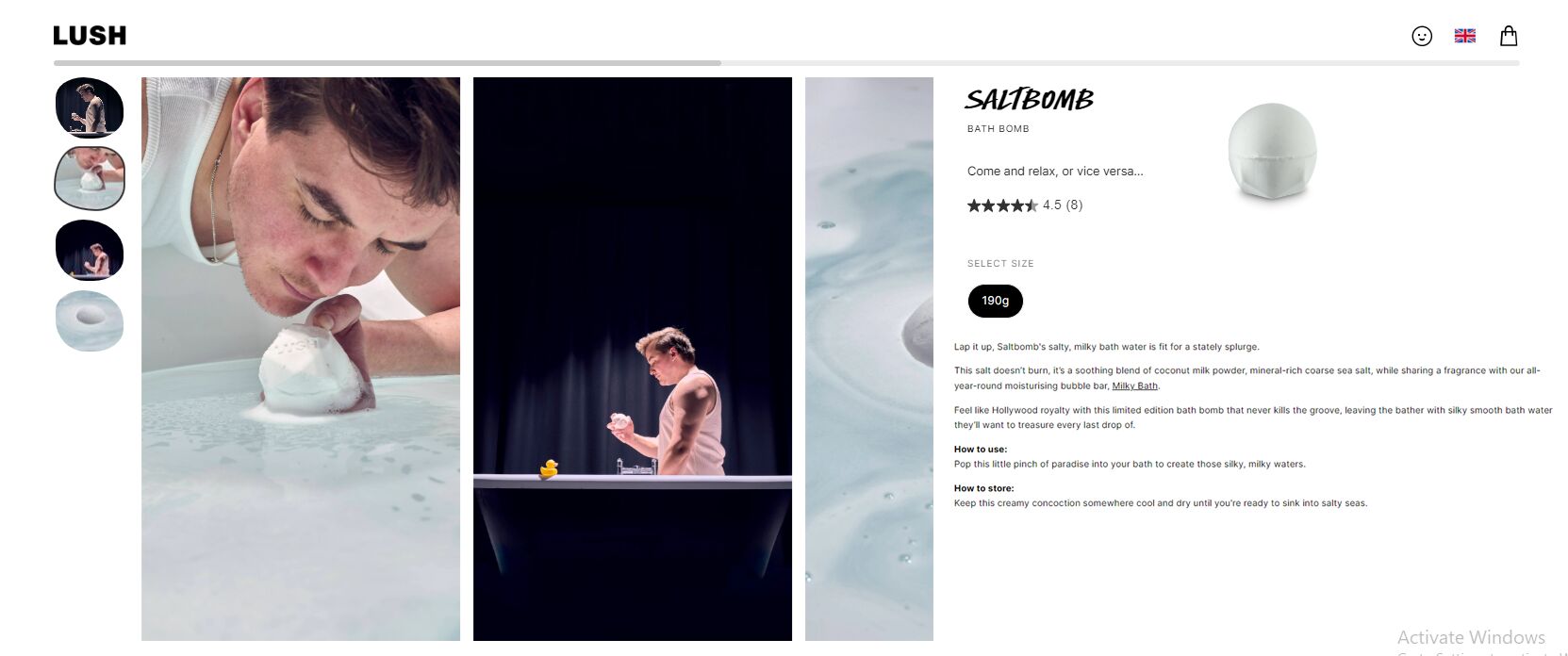

And we loved it.
The campaign led to 135 links, many coming from high DR (Domain Rating) publications, driving real, tangible organic traffic – including Global News, New York Times, Pop Sugar, and BBC.
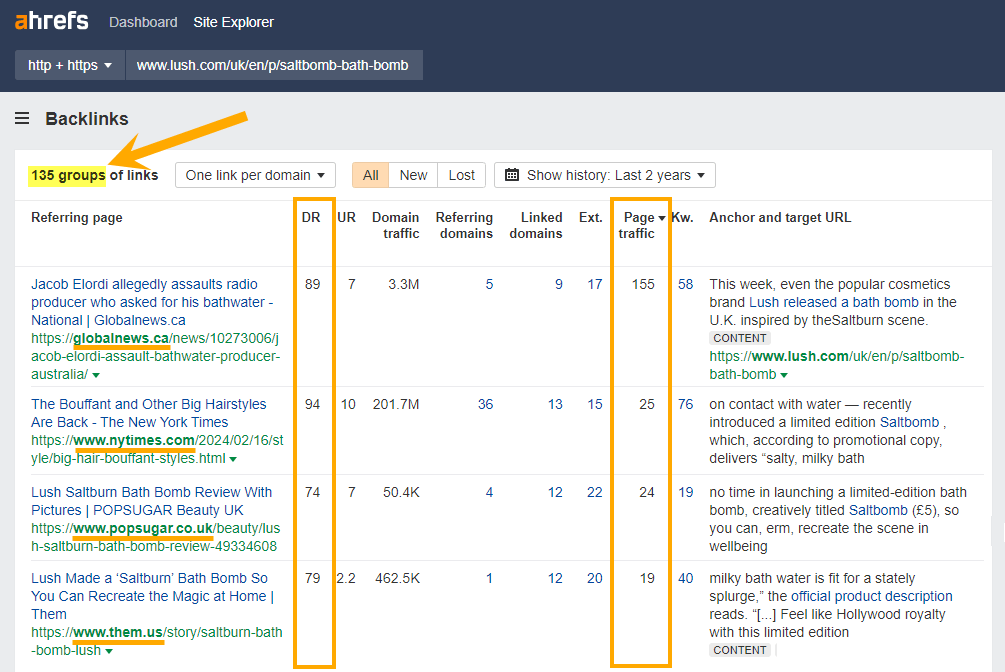

Press coverage actually went above and beyond this, because Lush’s products are part of a few publisher affiliate programs – but affiliate links are a little trickier to track.
Here’s an example of what I mean.
The site Allure wrote up a feature piece on the Lush bath bomb, but their affiliate link navigates to a third-party platform before redirecting to Lush’s product page.
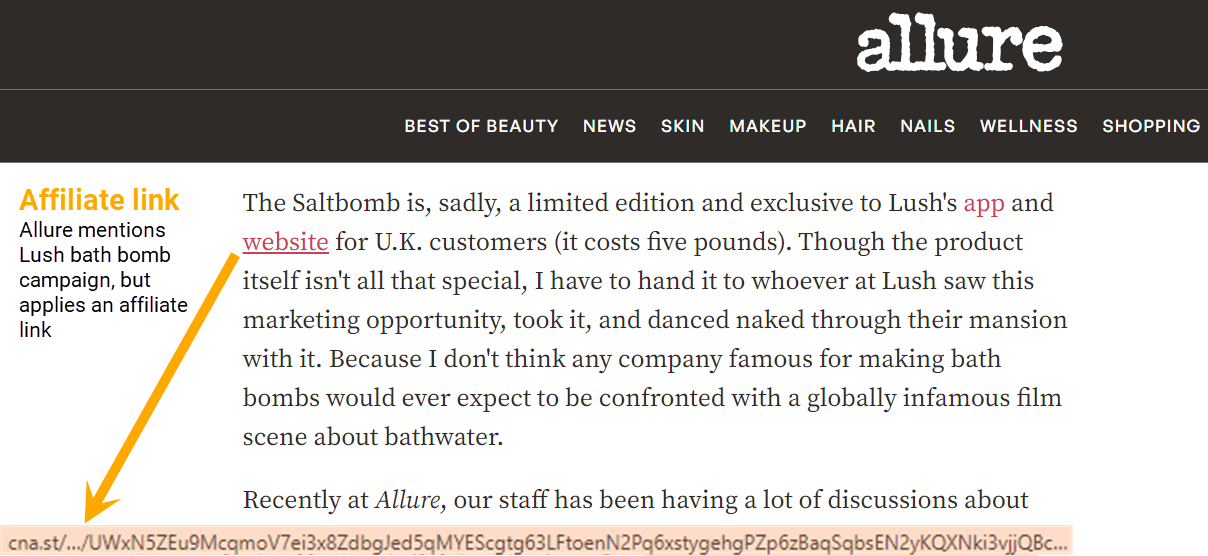

For that reason, the link doesn’t show up in Ahrefs’ Backlinks Report.


Instead, I found it by monitoring campaign-specific keywords in Content Explorer.
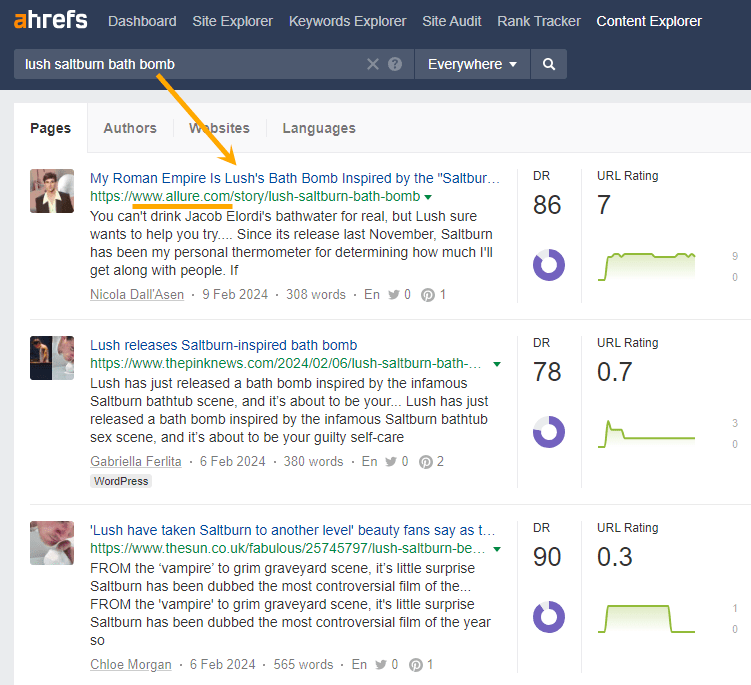

Beyond press and affiliate publicity, the Lush PR campaign was a winner on social media.
The photography and product descriptions made it perfect for meme-ification, which added thousands of views and impressions.
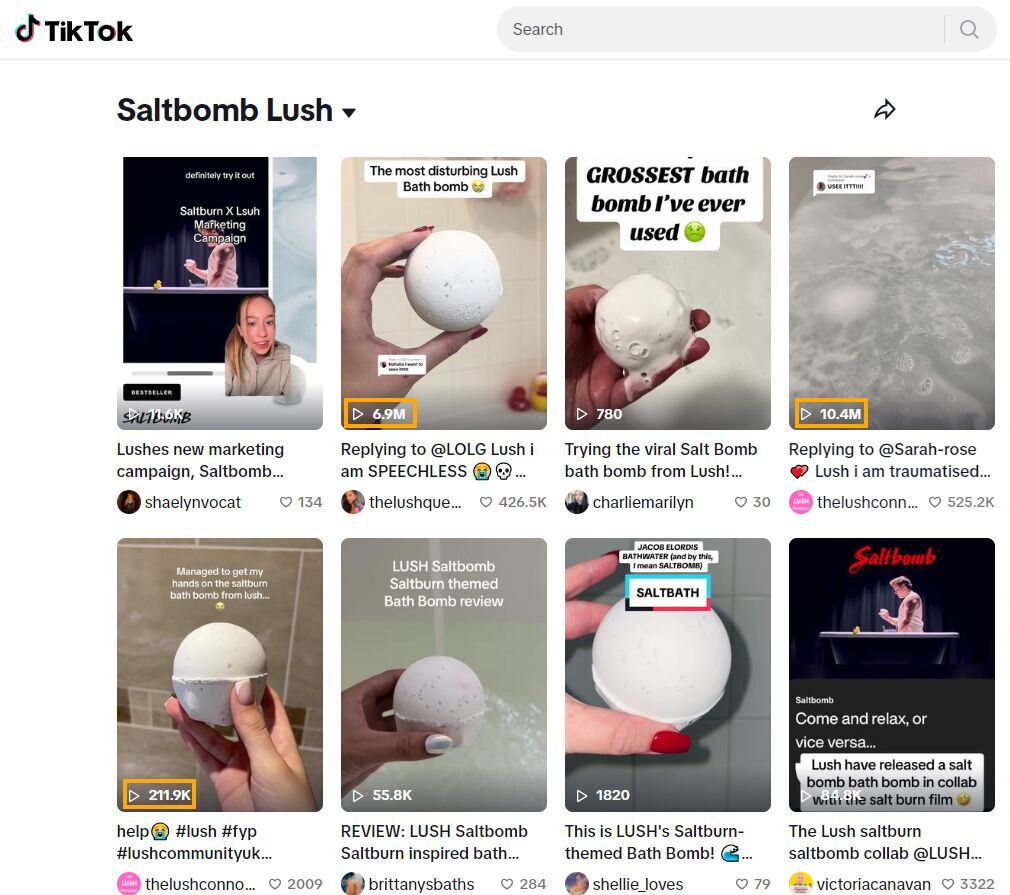

It also won big in search, with global keyword volume reaching 1.3K…


And the product landing page earned up to 800 monthly organic visits in its first month.
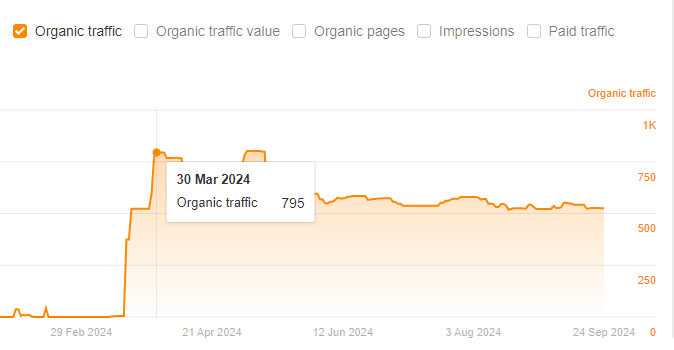

Traffic has remained steady since, averaging between 500 – 600 monthly visits, despite the product having been archived – pretty good going for a bit of trendjacking.
Quick learnings
- Scout for affiliate links – you won’t always know when a publisher plans to use an affiliate link, so searching for mentions of campaign keywords can help you find any affiliate coverage that has flown under the radar.
- Think about how your brand and its tangential topics can tie into cultural moments.
| Campaign 👴🏻 | Eclectic Grandpa |
| Brand 🏷️ | |
| Links earned 🔗 | 98 |
| Campaign type 📑 | Report |
| Global search volume 🔎 | 4.8K for “eclectic grandpa” |
| Search growth (YoY) 📈 | 215K% for “eclectic grandpa” |
Every year, Pinterest taps into their internal platform search data to post their trend forecasts in what is known as “Pinterest Predicts”.
Posting on Pinterest For Business (the company’s commercial arm), they categorize related high-growth searches, and assign them novel trend names like “Eclectic grandpa”, “Bow stacking” or “Cafe core”.
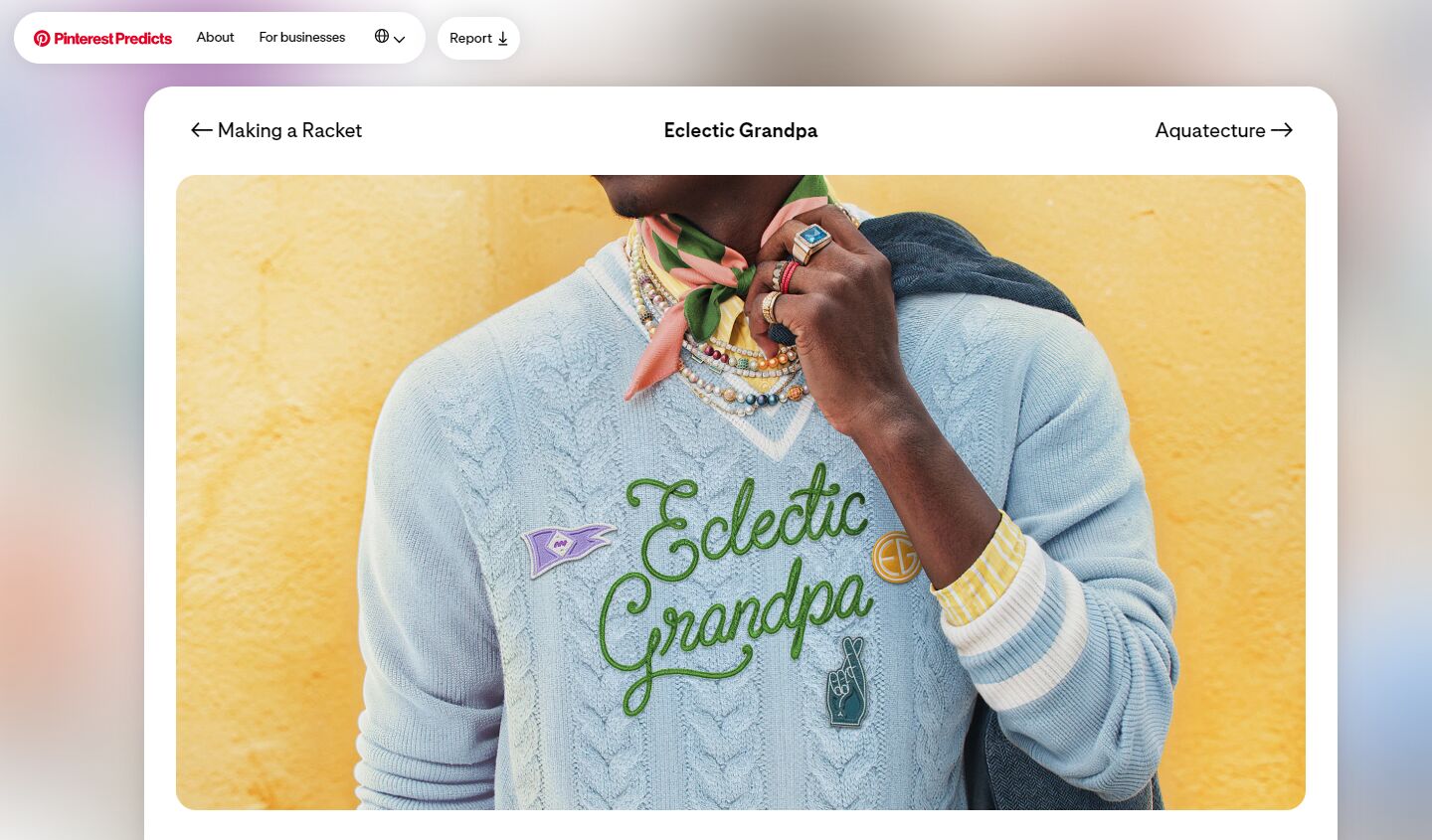

I took a look at the Site Structure report, and found that Pinterest’s most linked trend was in fact the “Eclectic Grandpa” which – in Pinterest’s words – is all about:
“Embracing ‘grandpa core’ and bringing eccentric and expressive elements for the ages to wardrobes. Think retro streetwear, chic cardigans and customised clothing. Because the coastal grandma aesthetic is so last year.”
To date, the trend has earned citations from 98 separate domains.
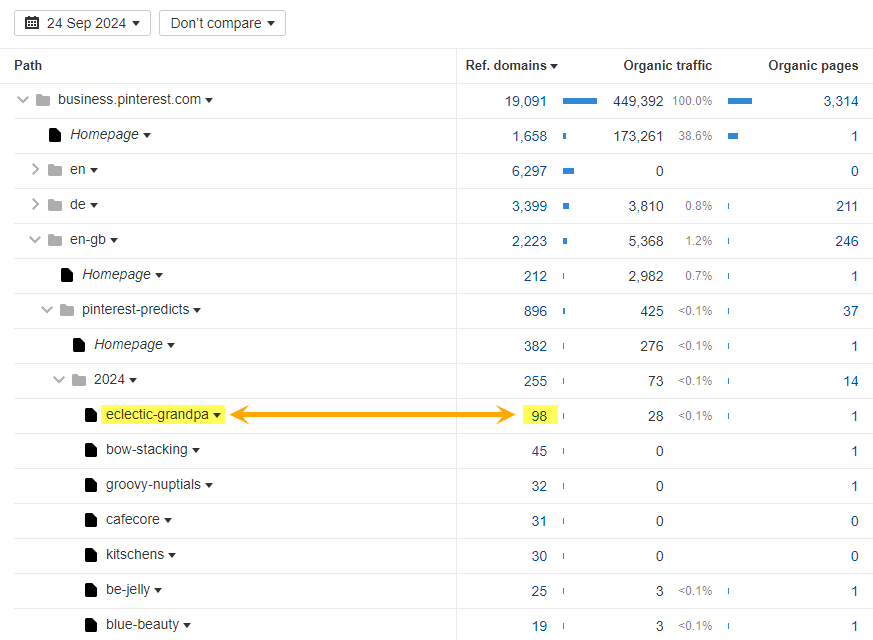

A look at the Backlinks report revealed coverage from Vogue, Elle, Who What Wear, New York Post, and Business Insider.
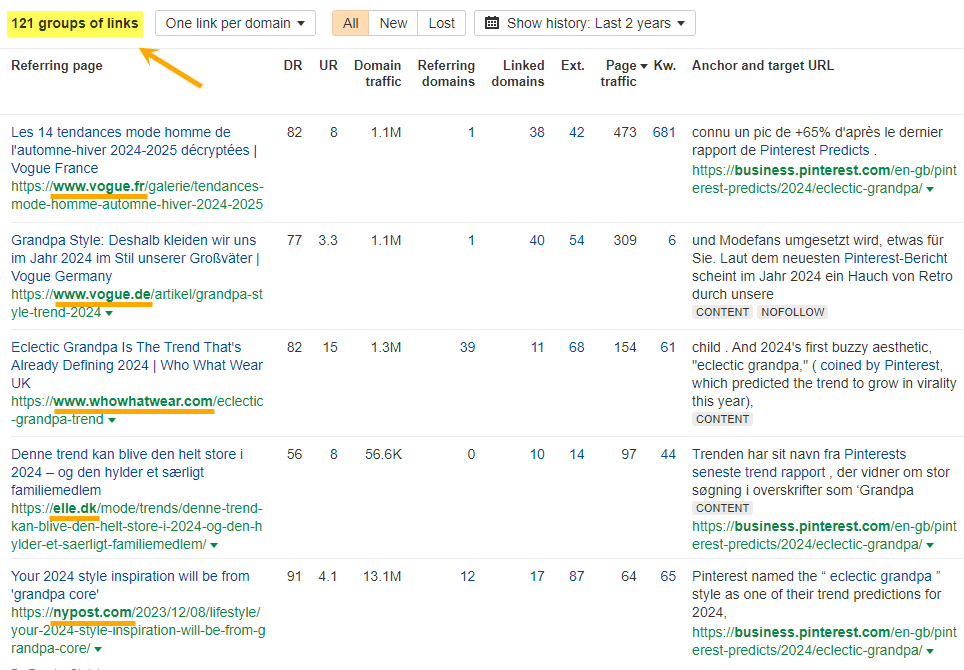

And it didn’t end there. The “Eclectic Grandpa” gets about a bit, cropping up 340 times in the articles I discovered via Content Explorer.
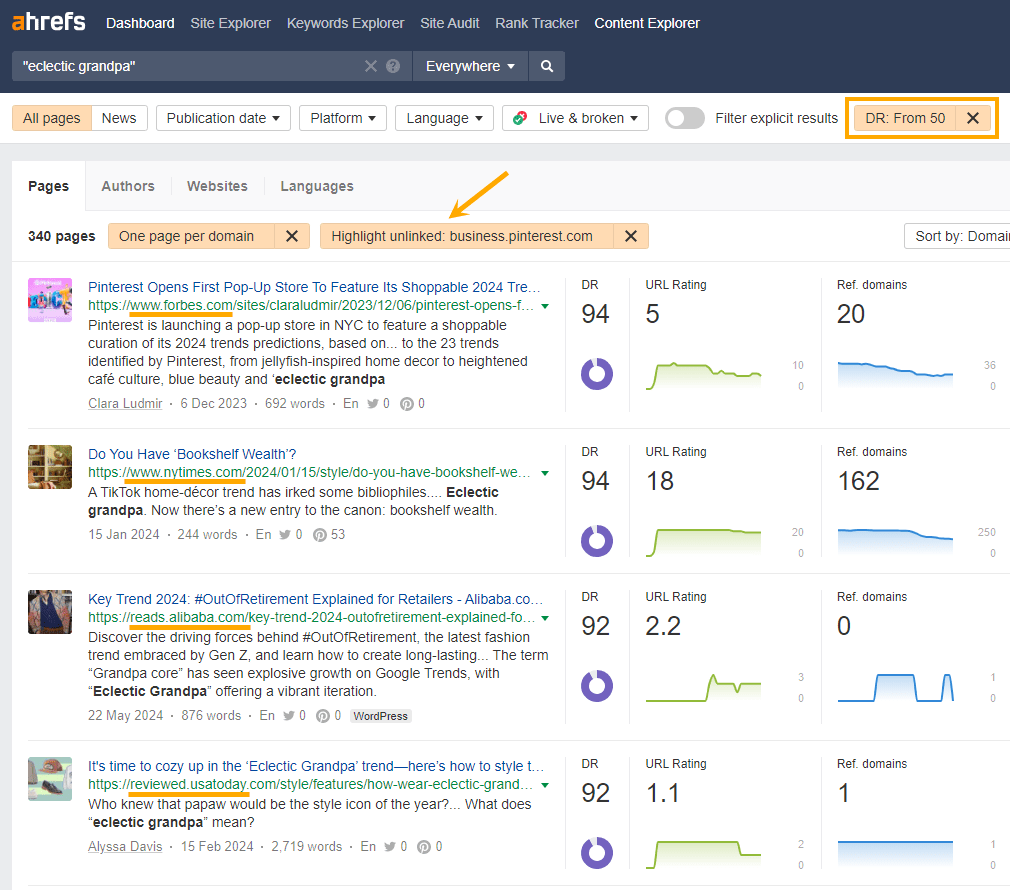

A considerable number of those DR 50+ mentions (150, to be precise) went unlinked based on Ahrefs’ Unlinked Mentions filter/export – links which could still be claimed by the Pinterest team.
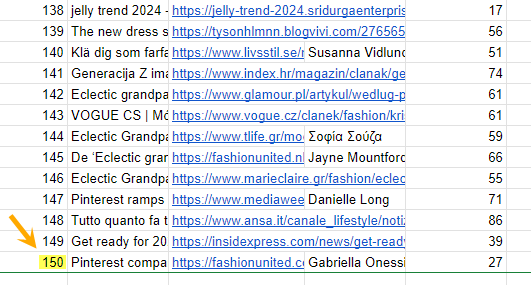

Given the far reaching coverage, searches for “Eclectic Grandpa” keywords have shot up in the last year, growing to 4.8K global search volume (GSV). 

By creating link magnet content, Pinterest has managed to drum up huge publicity – whether they pitched for it or not – making it a great example of a successful PR campaign.
Quick learnings
- Mine company data to publish new, unseen trends and insights.
- Come up with a unique name for self-discovered trends and/or theories so it’s easier to monitor uptake and keep track of press coverage.
- Track mentions – not just links – and claim any unlinked mentions to enhance SEO and brand authority.
Real estate marketplace, Zillow, surveyed 1,815 homeowners and found that those with lower mortgage rates are twice as likely to stay put vs selling their home.
By creating firsthand research tackling an issue close to their audience’s heart, Zillow earned 235 backlinks from the likes of Bloomberg, Yahoo, FoxBusiness, and Money.com.
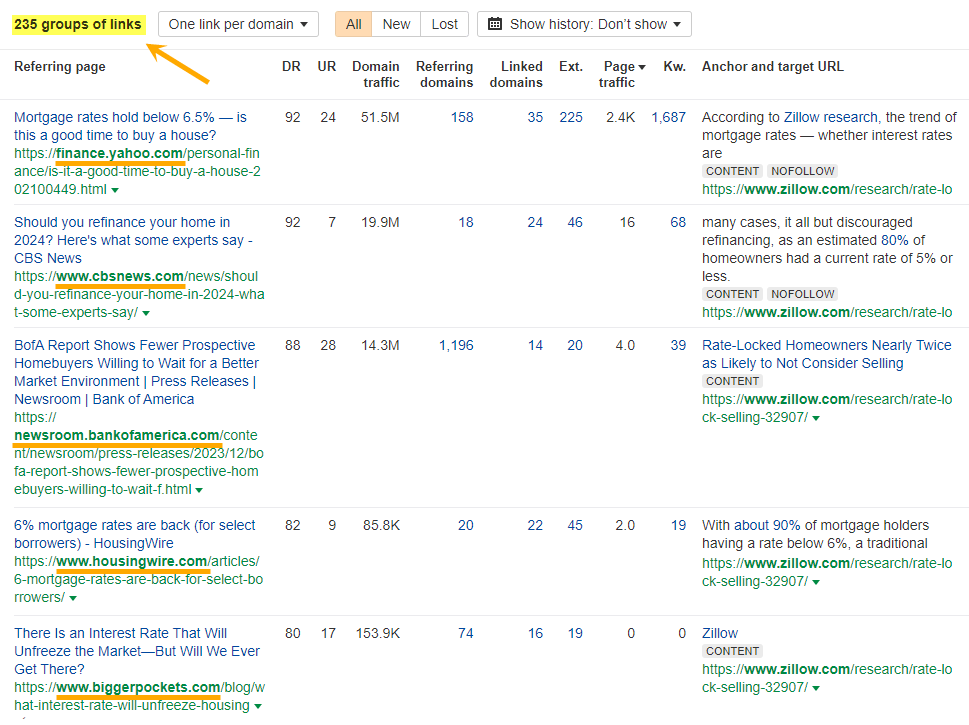

Sites referenced the survey for multiple reasons; not just quoting one stat, but a whole variety, as evidenced in the anchor text of their backlinks.
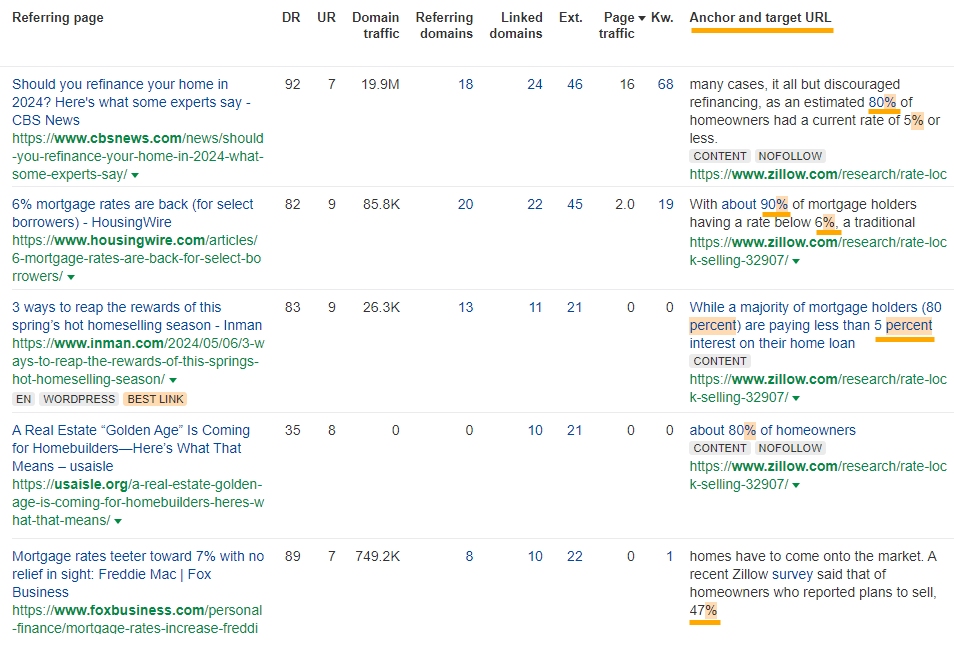

Quick learnings
- Conduct your own surveys, asking questions which address a key problem in your industry, then quantitatively analyze the responses.
- Tease out multiple hard hitting stats to drive more coverage and link variety.
| Campaign 🔮👨💻 | Future of Work |
| Brand 🏷️ | |
| Links earned 🔗 | 383 |
| Campaign type 📑 | Report |
| Global search volume 🔎 | 300 for “LinkedIn report” |
LinkedIn tends to keep their data under lock and key, but in their Future of Work report they released proprietary insights on the growth of AI conversations on the platform, plus the impact of AI on careers.
A great example of exclusive PR, LinkedIn’s report made a splash, landing 383 links in Forbes, Microsoft, Harvard Business Review, and CNET.
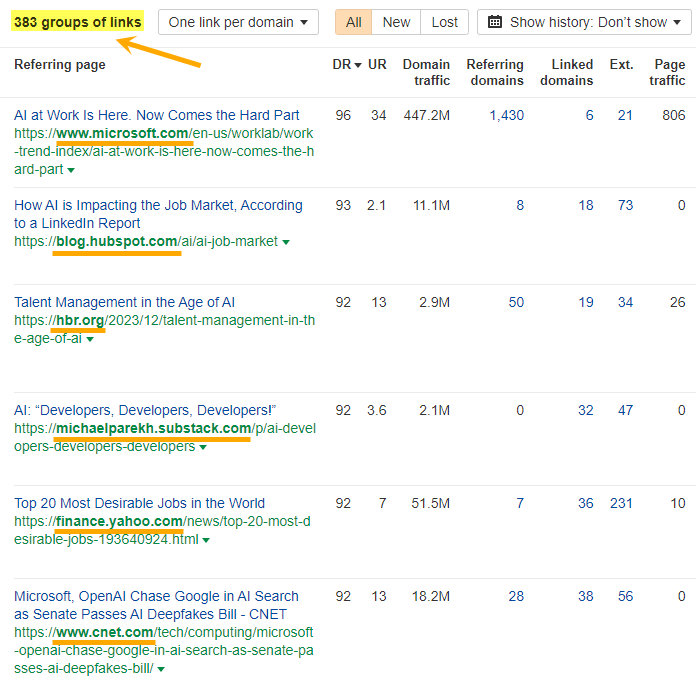

Quick learnings
- Think about what unseen or underground data you can harvest to generate exclusive research for your next PR campaign.
- If you have internal data, analyze patterns and trends to carve out a totally unique angle..
Tip
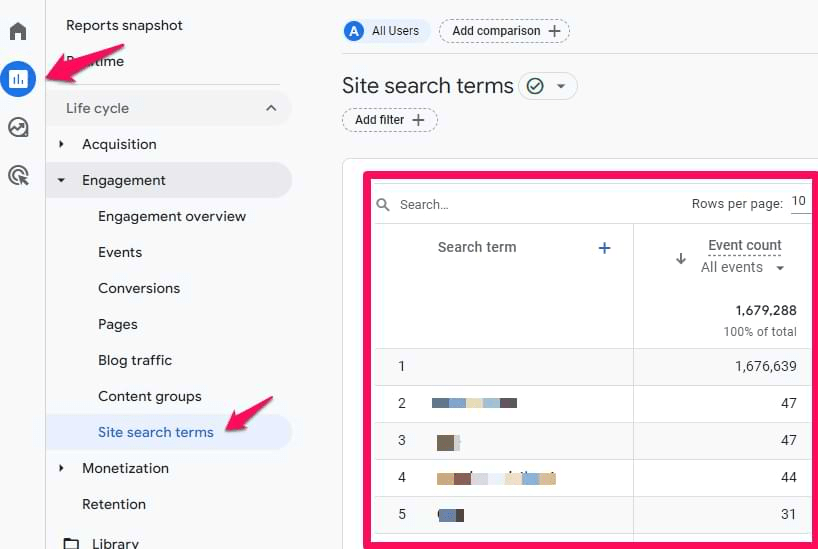
 If you can’t make use of primary data, tap into third-party sources. PR expert, Matt Seabridge, routinely shares some great data sources and PR campaign examples on LinkedIn – I really recommend giving him a follow.
If you can’t make use of primary data, tap into third-party sources. PR expert, Matt Seabridge, routinely shares some great data sources and PR campaign examples on LinkedIn – I really recommend giving him a follow. 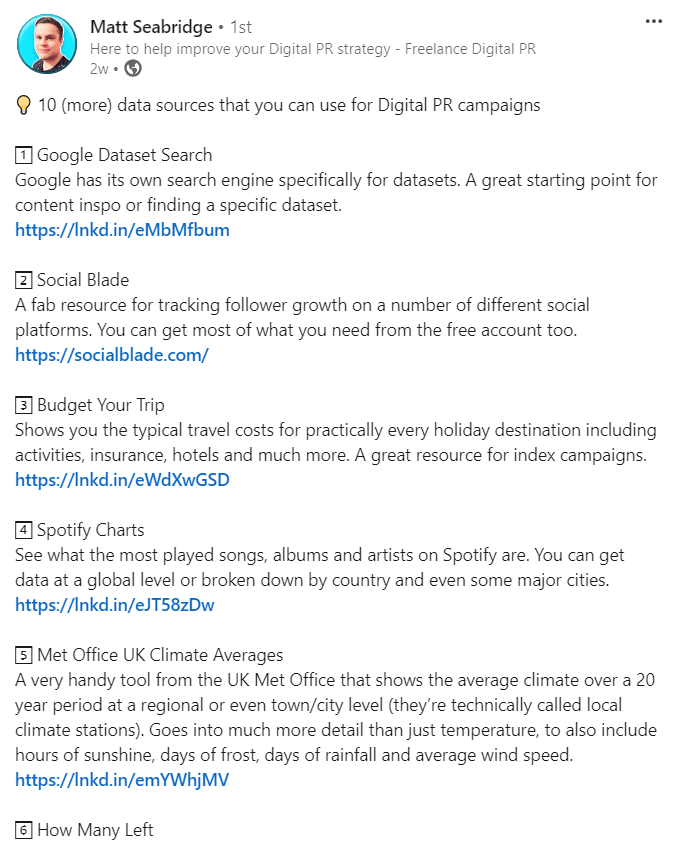

Personal finance company, WalletHub, compared the 150 largest metropolitan statistical areas, or MSAs, across 11 key metrics.
Combining primary data with third-party sources like the U.S. Census Bureau, GreatSchools.org, and Yelp, WalletHub created an interactive study ranking the most and least educated cities in America.
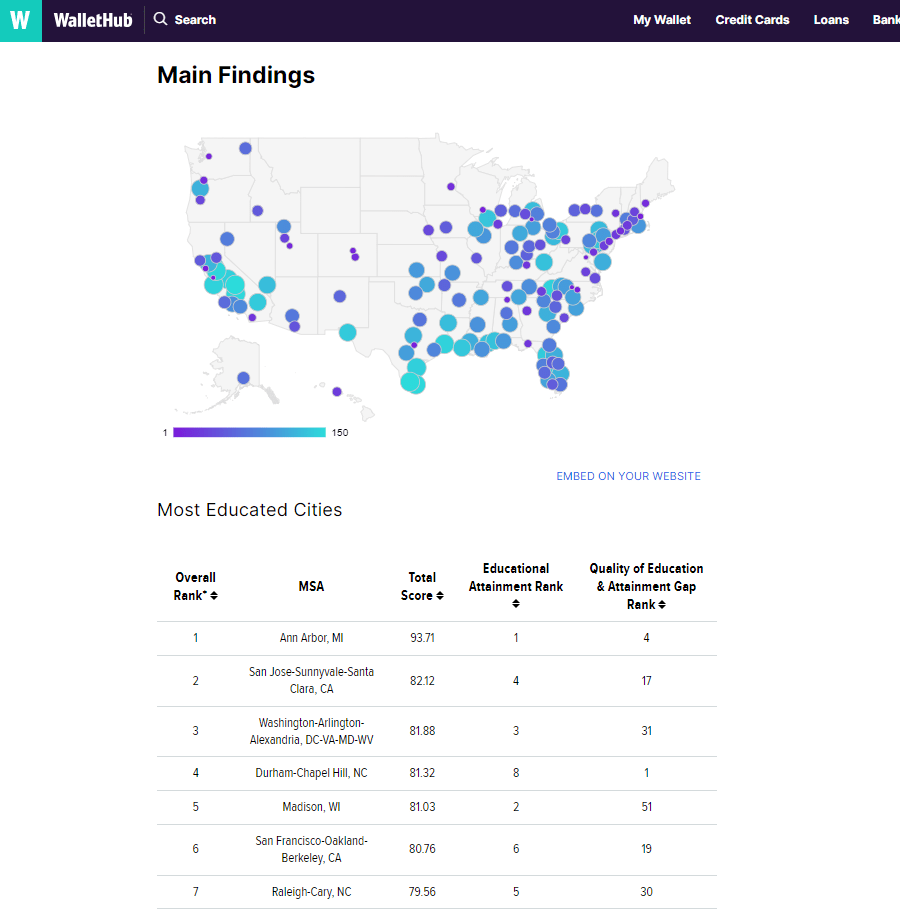

This is an example of a PR campaign that doubles as great content marketing.
It snagged 604 unique backlinks from heavy hitters like Wikipedia, Forbes, Business Insider, Bloomberg, and Yahoo – as well as tons of state publications.
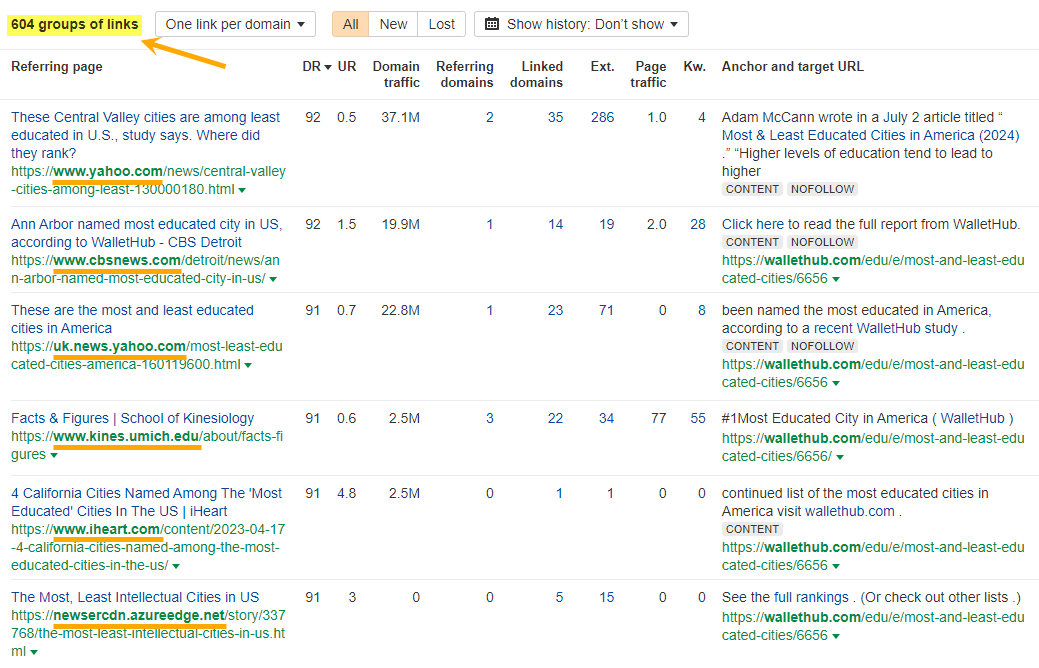

Location based PR campaigns are an especially powerful form of PR, since they have both local and national appeal.
Here’s Tom Chivers, PR Expert and Founder of Sabot, explaining why localization really works for public relations campaigns – with a great additional point made by Co-Founder of Journo Finder, Veronica Fletcher.
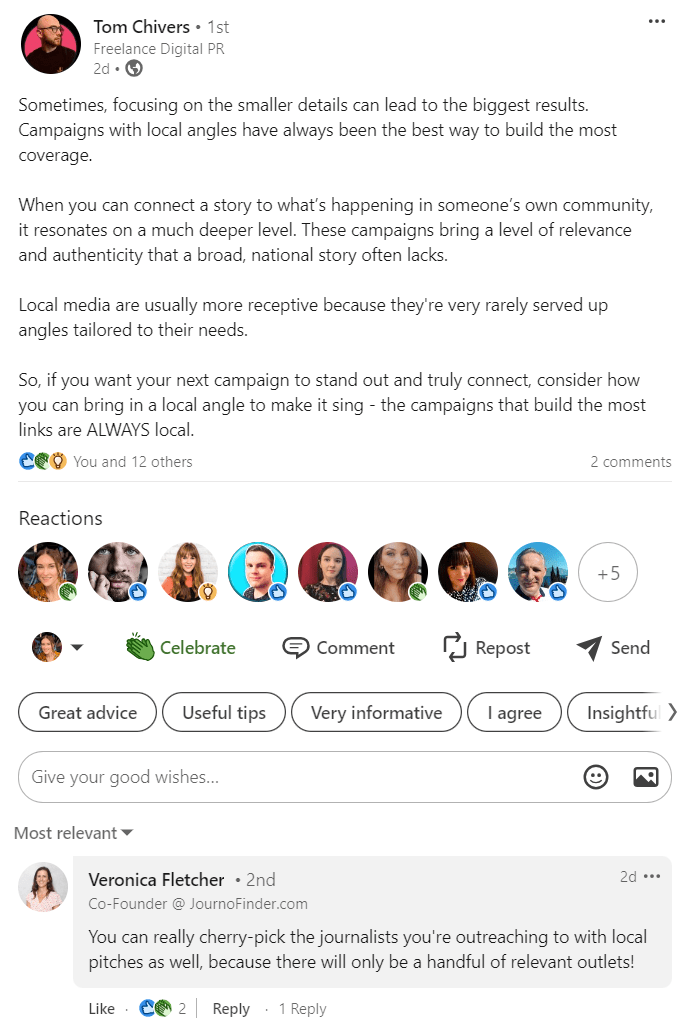

Quick learnings
- Use superlatives in headlines (e.g. “Most”, “Least”, “Best”).
- Embrace ranking formats – comparisons make readers want to click to see how they size up.
- Slice and dice your data by location to get your campaign syndicated in both national and local publications.
| Campaign 🍩 | “Go USA” and “Passport to Paris” doughnuts |
| Brand(s) 🏷️ | Krispy Kreme |
| Links earned 🔗 | 95 |
| Campaign type 📰 | Newjacking/brand collab/product release |
| Global search volume 🔎 | 45K for “Olympics Krispy Kreme Doughnuts” |
| Search growth (YoY) 📈 | 4.4M% for “Olympics Krispy Kreme Doughnuts” |
Krispy Kreme rode the wave of Olympic interest this year by developing two special edition doughnuts: “Go USA” and “Passport to Paris”.
As we’ve seen already, popular PR campaigns don’t always neatly track back to the sources you’d expect them to.
Krispy Kreme earned only 11 links to their USA doughnut press release, and 20 to their Paris doughnut launch announcement. Not exactly groundbreaking.
But when you filter for mentions of campaign keywords (e.g. “Go USA” and “Paris”) at the domain-level, you find a whole lot more coverage; 95 links, to be precise, from major publications like Yahoo, USA Today, People, and the Food Network.
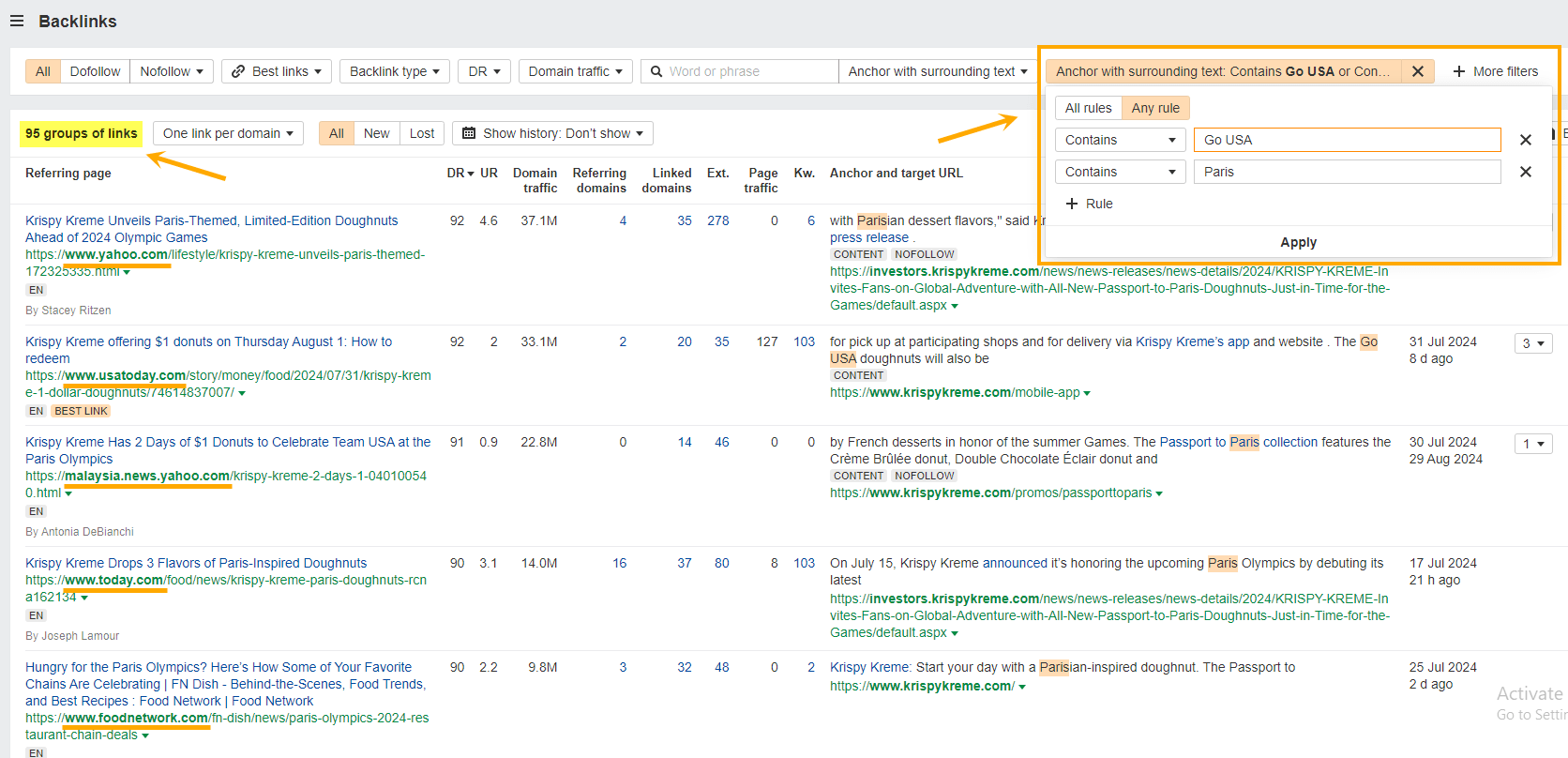

The special edition doughnuts also drive a cool 45K monthly searches, according to the Matching Terms report in Keywords Explorer.
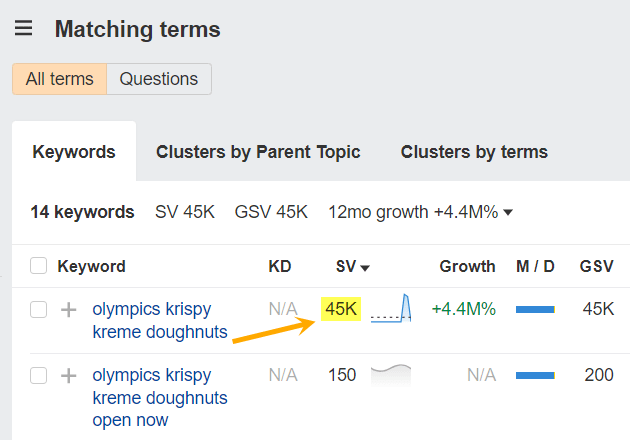

Quick learnings
- Capitalize on high demand around recurring events.
- For campaigns that can’t be neatly tracked (e.g. no specific landing page, or product page) pay closer attention to homepage or domain-level links through clever filtering.
| Campaign 🍟👞 | McDonald’s + Crocs Collaboration |
| Brand(s) 🏷️ | Crocs + McDonald’s |
| Links earned 🔗 | 516 |
| Campaign type 📰 | Brand collab/product release |
| Global search volume 🔎 | 18K for “mcdonalds crocs” |
| Search growth (YoY) 📈 | 838% for “mcdonalds crocs” |
This next PR example is a campaign of multiple parts. It began with a pair of McDonald’s themed Crocs, and has extended to a full blown footwear collection…
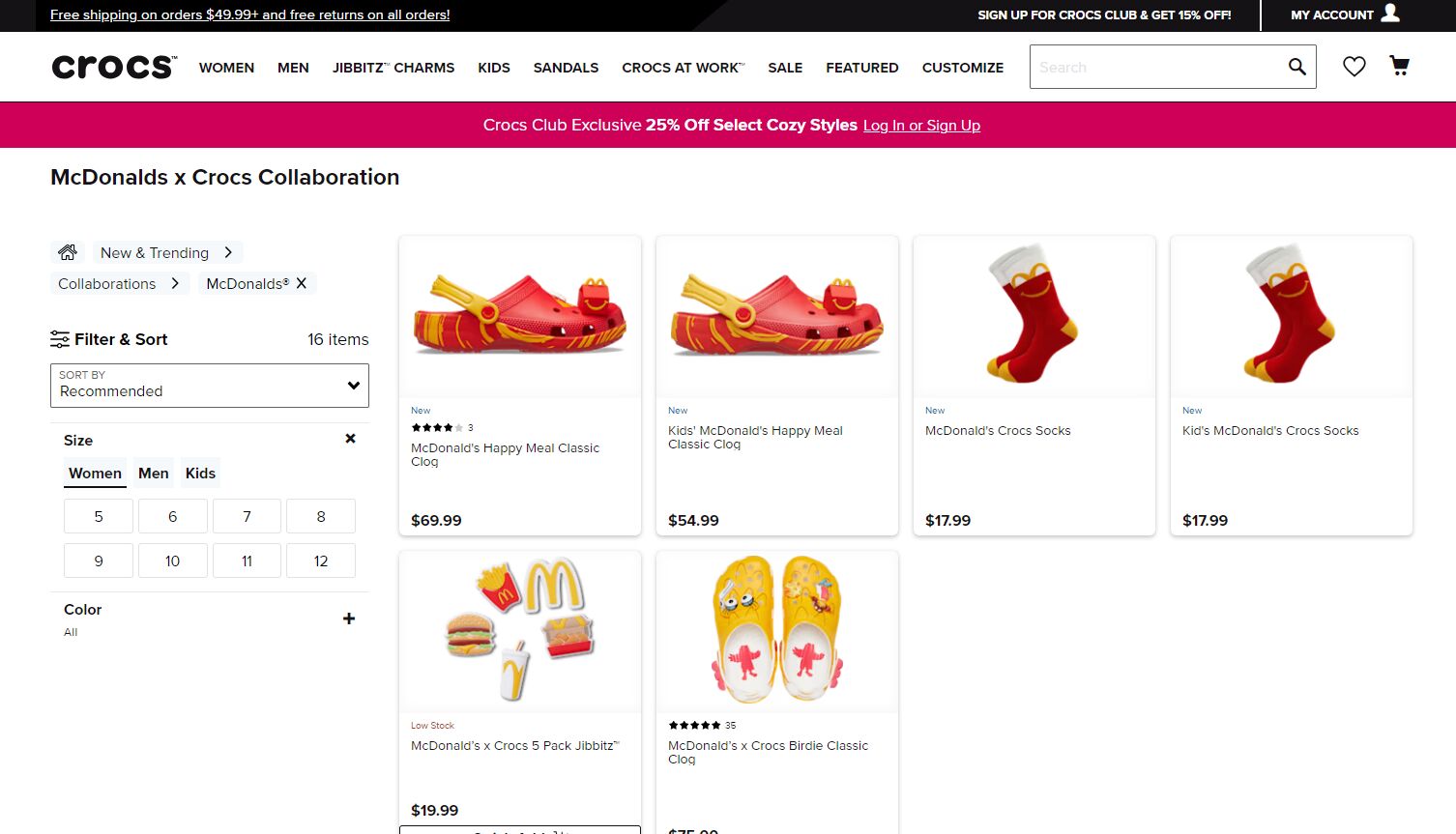

And a novelty product: McDonald’s happy meal mini-crocs keyring.
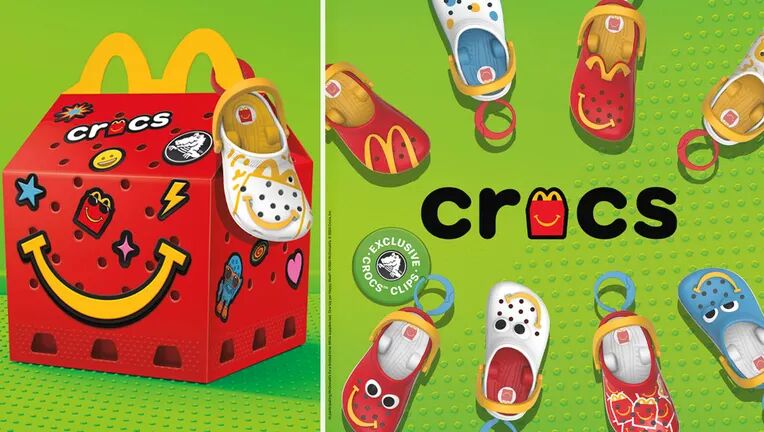

The coordinated PR campaign has generated huge awareness for both brands, but tracking all the fragmented assets is no mean feat.
To get a better idea of overall brand awareness, I opted instead to search for co-citations at the domain level.
Searching in the Backlinks report, I applied filters for each brand name in the other’s backlink profile.
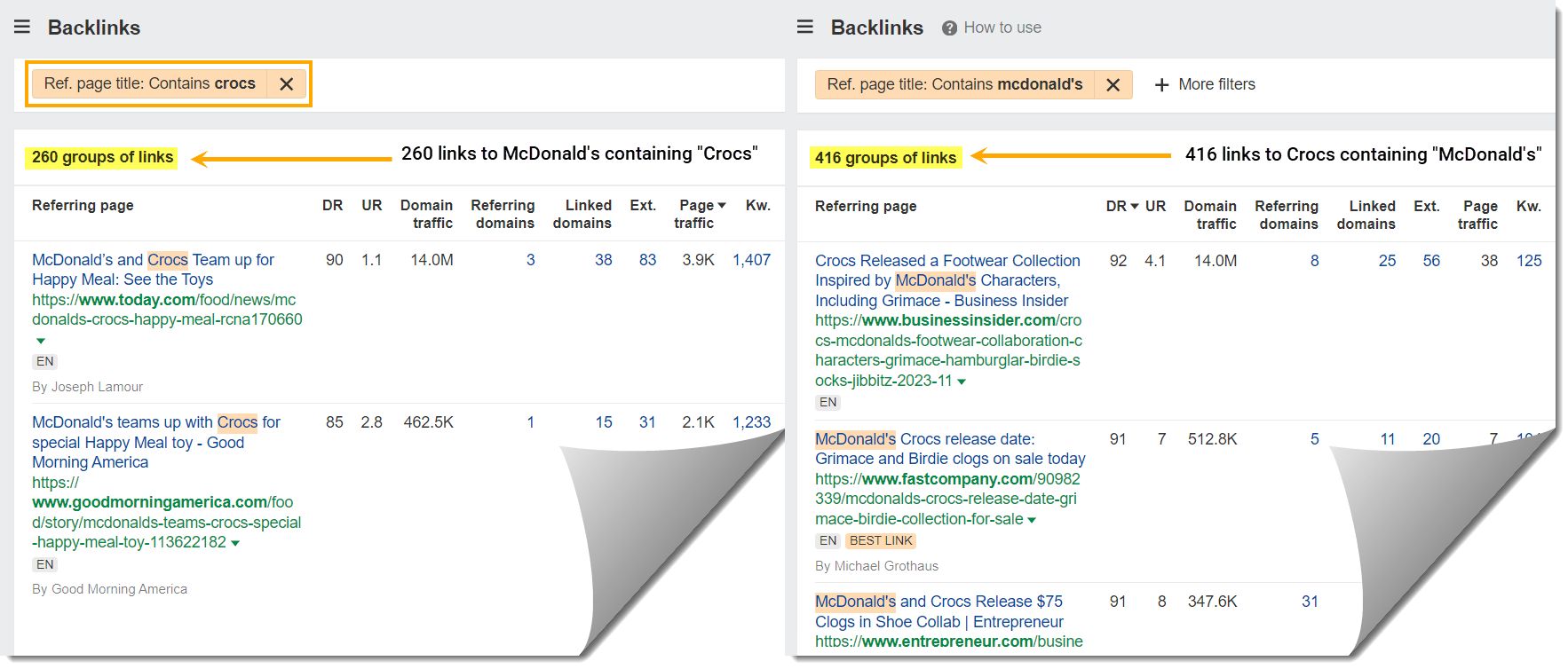

McDonald’s earned 260 links for “Crocs” related content, but Crocs was the real winner, landing 416 links for “McDonald’s” related press from media goliaths like Business Insider, Fast Company, and Entrepreneur.
From studying the campaign’s individual assets, I noticed something interesting: social posts have the ability to attract links.
Take for instance, this UGC post by Instagram food account, Snackolater. It landed 24 backlinks after sharing news of the happy meal mini-croc launch.
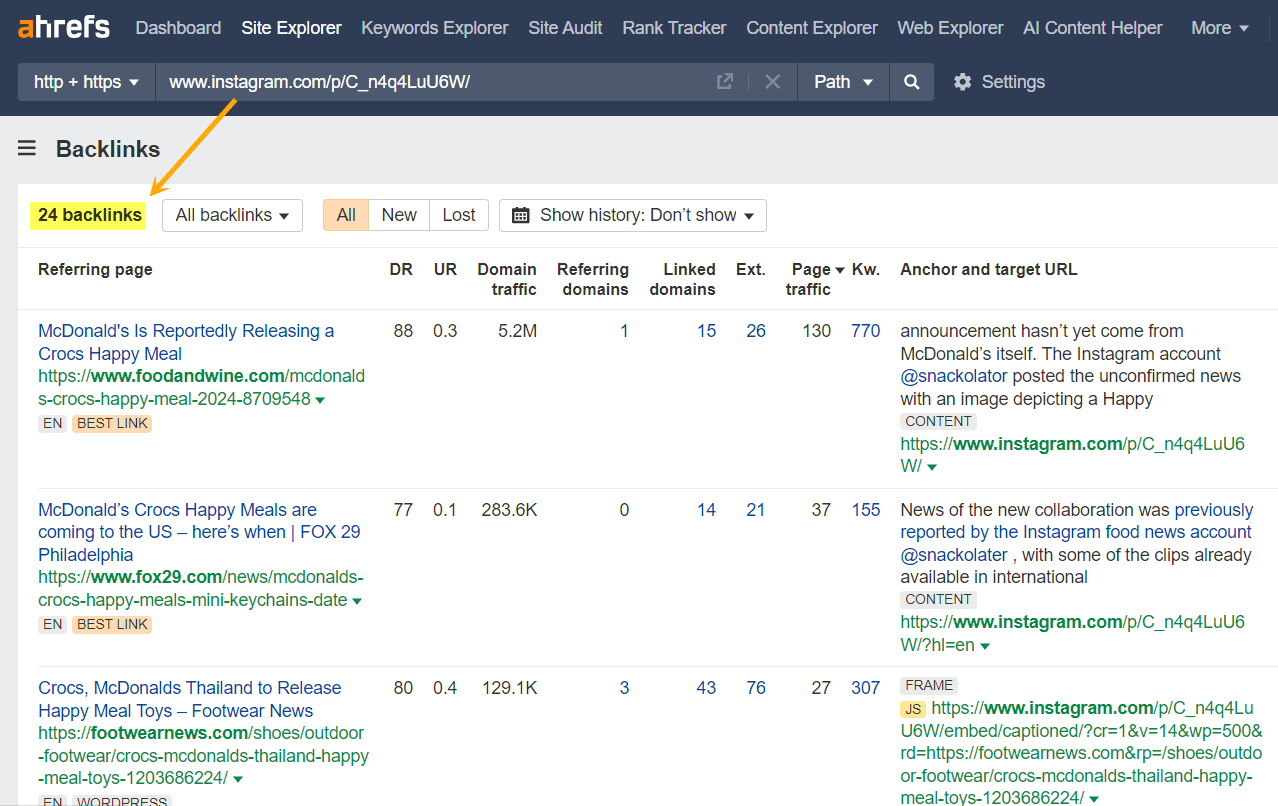

It had never occurred to me to track social media posts for links, but you can never tell how a journalist is going to reference your campaign, so it’s worthwhile setting up a backlink alert for all your assets just in case!
The growth of brand searches is a real testament to the success of a PR campaign, and this collaboration definitely delivers on that front.
Audiences are searching for relevant McDonald’s + Croc based keywords a total of 37K times a month on average, based on data in Keywords Explorer.
Quick learnings
- Sometimes, the “side” brand in a collaboration can snag more links. Keep that in mind for your next PR partnership.
- With two brands there are double the assets to track, including product pages, press releases, landing pages, and various social posts – make sure you have purview over the performance of all moving parts to track public relations campaigns holistically.
- Don’t forget to report on social posts, not just for impressions/engagement but for links.
| Campaign ❎🍑 | Do your lesson, no buts |
| Brand(s) 🏷️ | Duo Lingo |
| Links earned 🔗 | 130 |
| Campaign type 📽️ | Advert |
| Global search volume 🔎 | 250 for “Duolingo commercial” |
| Search growth (YoY) 📈 | 376% for “Duolingo commercial” |
Duolingo leaned into their weird yet wonderful brand of marketing with a hilarious superbowl ad featuring Duo, the brand’s menacing owl character.
In 5 (wild) seconds, we witness the explosion of Duo’s butt, and the growth of a mini Duo in its place, accompanied by a reminder to do our Duo Lingo lesson.
The ad creative was repurposed from a widget design that went semi-viral – Duo Lingo knew it worked, so they built on it.
And in a stroke of coordinated PR genius, they simultaneously sent out a push-notification to app users as soon as the ad went live.
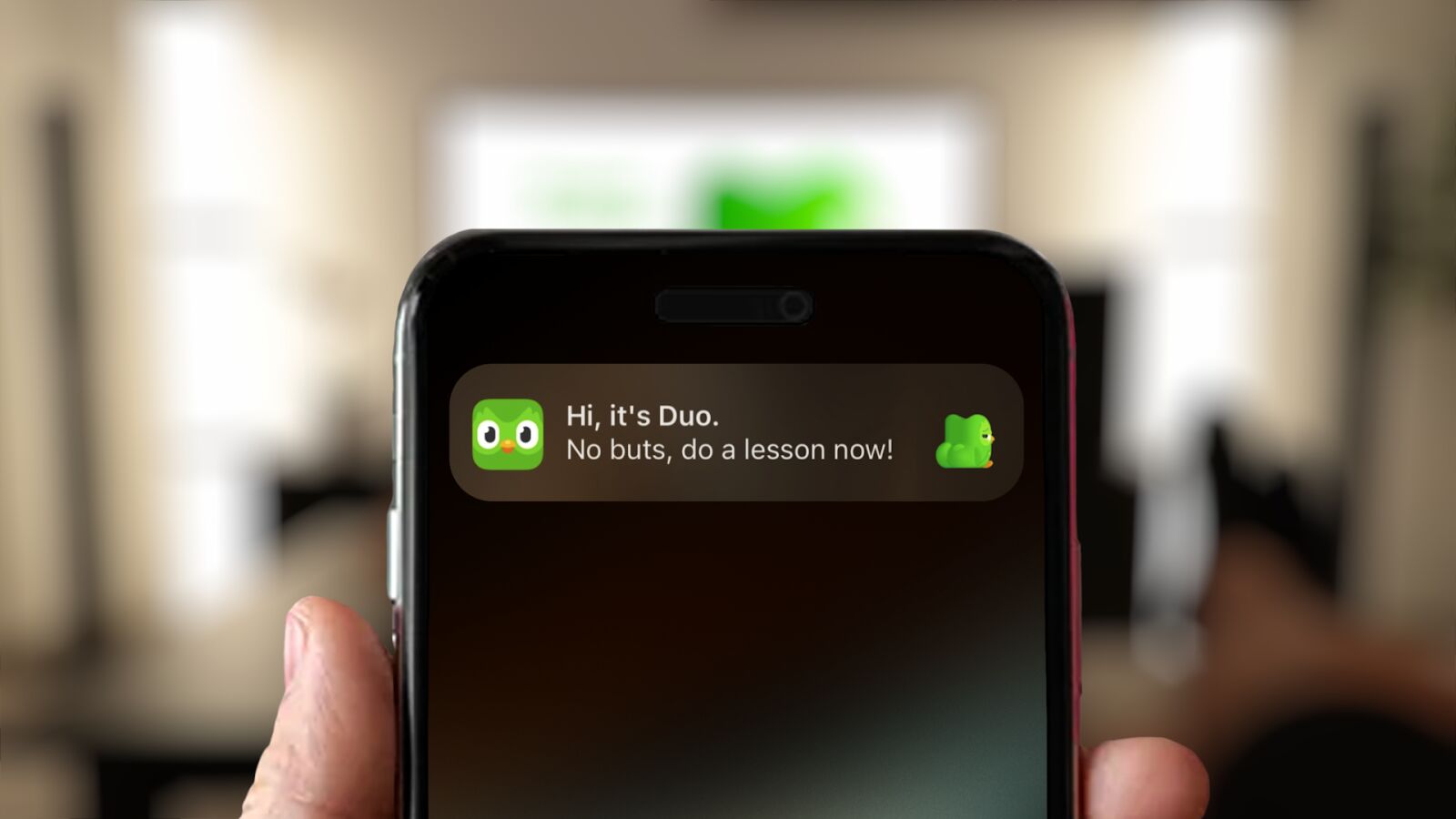

“We decided to pair the ad with a coordinated push notification, which would hit learners’ phones right after the commercial aired, reinforcing the idea that Duo is always watching 👀.”
The YouTube commercial has earned 5M views and 130 links from Gizmodo, Lifehacker, and Indy100.
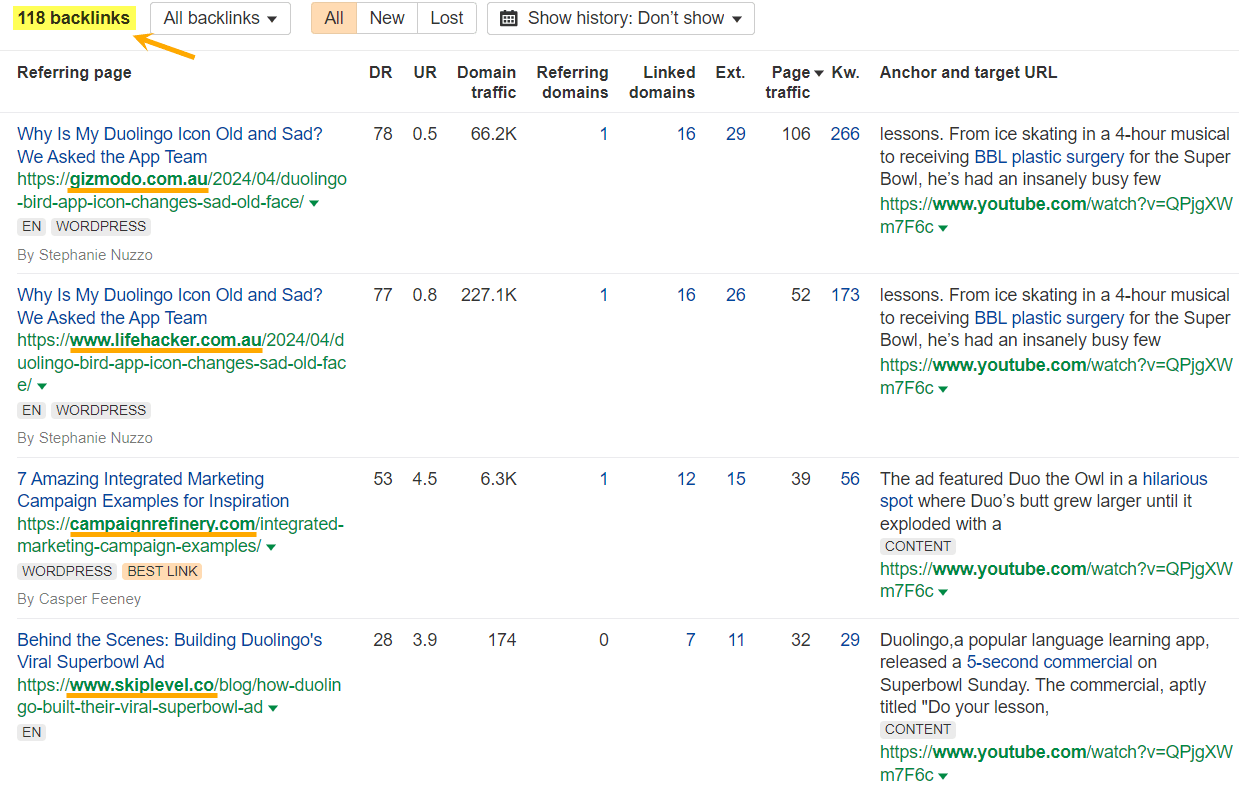

Plus 24M plays on TikTok.
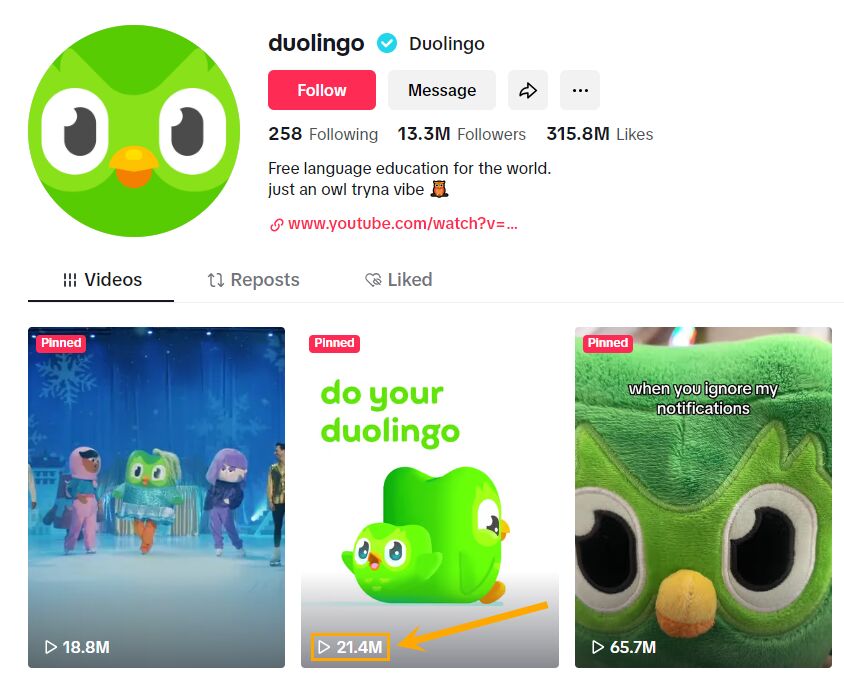

The Duolingo team have written up a seriously funny play-by-play of the PR campaign here – they talk about everything from the lengths they went to to get the right “shine” on Duo’s buttocks, to carefully selecting the perfect fart sound effect. I recommend reading it, for a giggle if nothing else.
Quick learnings
- Upcycle owned content that has worked well in the past for your next PR campaign.
- Try a mixed-message approach to really drive the point of your campaign home.
How I found these PR campaign examples (and you can too)
I spent a lot of time:
There were so many awesome examples of PR, but I narrowed it down to the ones that drove either press mentions, links, search volume, traffic, or all of the above.
Final thoughts
The best PR campaigns aren’t just about links. They’re about creating conversations, driving awareness, and making a lasting impact on your audience.
Here’s a quick recap of some of the top takeaways:
- Time it right: Launch your campaigns when conversations peak
- Tap into unique data: Use exclusive insights to stand out
- Track holistically: Monitor links, mentions, searches, and social
- Rank and compare: Engage multiple audience “tribes” through rankings
- Take a local angle: Analyze multiple locations to win more press
- Collaborate creatively: Brand partnerships can amplify your reach
- Repurpose winners: Turn successful content into new campaigns
Success is predicated on a campaign meeting its goal(s), and while we don’t know exactly what these brands set out to achieve, their campaigns have enjoyed results that most of us would be pretty happy with.
Hopefully they’ve given you some inspiration for your next project.

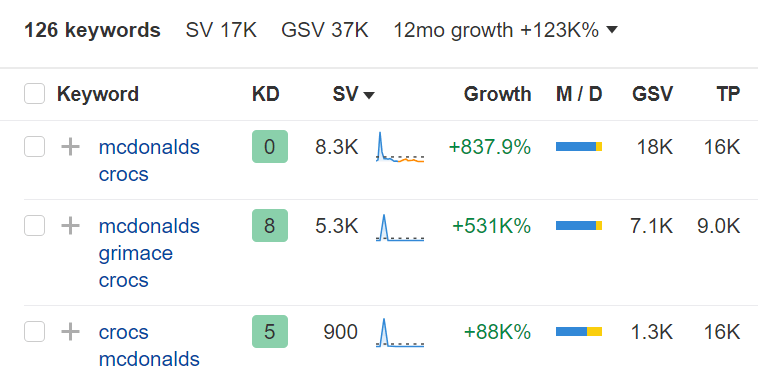


![How AEO Will Impact Your Business's Google Visibility in 2026 Why Your Small Business’s Google Visibility in 2026 Depends on AEO [Webinar]](https://articles.entireweb.com/wp-content/uploads/2026/01/How-AEO-Will-Impact-Your-Businesss-Google-Visibility-in-2026-400x240.png)
![How AEO Will Impact Your Business's Google Visibility in 2026 Why Your Small Business’s Google Visibility in 2026 Depends on AEO [Webinar]](https://articles.entireweb.com/wp-content/uploads/2026/01/How-AEO-Will-Impact-Your-Businesss-Google-Visibility-in-2026-80x80.png)












